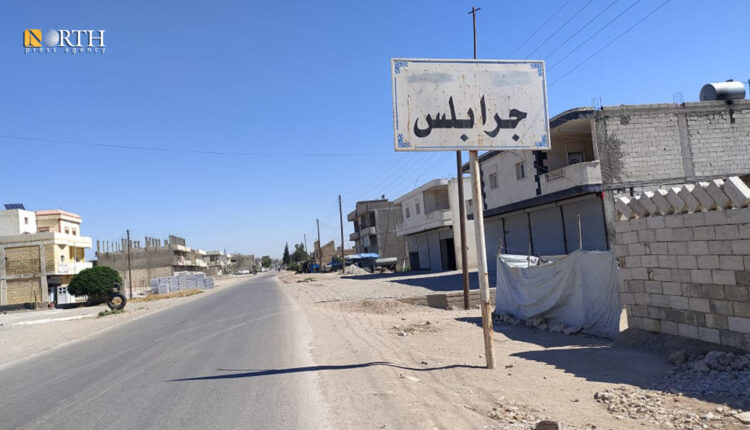Three Family Members Injured in IED Blast in Eastern Aleppo
By Kardo Roj
JARABLUS, Syria (North Press) – Three civilians from the same family, including a child and a woman, were injured on Wednesday when an improvised explosive device (IED) detonated in their vehicle near the city of Jarablus in eastern Aleppo, north Syria.
The explosion occurred on the road to the village of al-Kusa, located in rural Jarablus, an area under the control of Turkish-backed factions. According to Syria’s state-run Ikhbariya TV channel, the injured individuals were transported by local residents to a nearby hospital for treatment. Their conditions were not immediately disclosed.
This incident follows a similar tragedy earlier in the week. On Sunday, one person was killed and two others injured, all from a single family, after their vehicle struck a landmine in the al-Bayyara area of eastern Homs.
Rights and humanitarian organizations have repeatedly warned about the widespread presence of unexploded ordnance and mines across Syria, remnants of more than a decade of conflict. These hazards continue to pose severe risks to civilian lives, particularly in areas where security conditions have remained unstable.
The proliferation of IEDs, landmines, and other explosive remnants has become a persistent threat in regions where multiple armed groups have vied for control, often leaving behind unmarked and hazardous zones. Civilians traveling on rural roads and returnees to previously contested areas are especially vulnerable.
Since the onset of the Syrian conflict, thousands of civilians, including women and children, have been killed or injured by explosive remnants. International NGOs and local civil society groups have stressed the urgent need for expanded demining operations and awareness campaigns, particularly in regions with a high civilian return rate.
In contrast, areas under the administration of the Autonomous Administration of North and East Syria (AANES), supported by the Syrian Democratic Forces (SDF), have seen structured efforts to clear mines and secure civilian infrastructure. However, in territories held by other actors, particularly in northwest and northern Syria, consistent safety measures and clearance operations remain limited.
The blast in Jarablus once again highlights the acute danger posed to families attempting to lead normal lives amid residual war-related threats. Local sources report that roads in and around villages like al-Kusa are often used by civilians for daily transportation, with little to no demining presence.
There has been no immediate claim of responsibility for the device planted in the family’s vehicle, and investigations into the incident are ongoing.
Humanitarian organizations continue to call for coordinated international support to expand mine clearance efforts and to provide urgent medical assistance and rehabilitation services to victims of explosive incidents.

